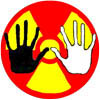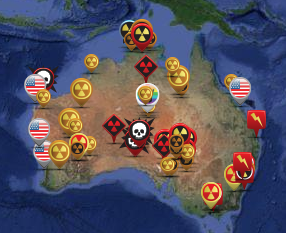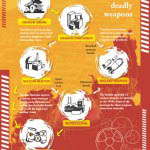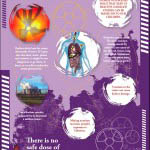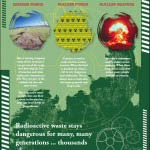The 2013 meeting of the Australian Nuclear Free Alliance (ANFA) was held on the weekend of October 25-27 on the land of the Peramangk (Perrimak) people in the Adelaide Hills.
The Alliance brings together Aboriginal people, environment and health groups and trade union representatives concerned about uranium and nuclear projects.
The ANFA gathering was attended by representatives of the following Aboriginal nations, organisations and affiliated groups: Alyawarr, Anmatjere, Arabana, Arrernte, Bailai (Buyelee), Gurindji, Iwaidja, Katyede, Koara, Kokatha/Anterkirinya, Kokatha/Mirning, Kokatha/Narrangar, Larrakia, Martu, Meriam, Mir, Eastern Torres Strait Islands, Ngalia, Nyoongar, Kunarakun, Ngarninjarra/ Pitjantjatjarra/ Yankunytjatjara, Tanganekald/Meintangk, Tjupan, Walpiri, Wajarri Yamatji, Warlmanpa, Warumungu, Wulgurukaba. Arid Lands Environment Centre, Australian Conservation Foundation, Beyond Nuclear Initiative, Conservation Council of Western Australia, Environment Centre of the Northern Territory, Friends of the Earth, Gundjeihmi Aboriginal Corporation, Hands Around the World, International Campaign to Abolish Nuclear Weapons, Maritime Union of Australia (NSW and NT), Medical Association for Prevention of War, South Coast Trades and Labour Council (NSW), Public Health Association Australia (NT), National Tertiary Education Union (NSW), Uranium Free NSW, Western Australia Nuclear Free Alliance.
Issues and concerns discussed at the meeting included:
Land Rights, Sovereignty and Native Title
Self-determination and access to country are at the heart of the struggle for Aboriginal rights. Many delegates know first hand that pressure from companies and government to say yes to mining is strong and divisive. In the face of seemingly unstoppable projects people often feel their only option is to participate in negotiations and try to get the best deal they can. Legal structures are set up to assist mining companies and divide communities but if people stay strong and united, unwanted mines can be stopped.
Uranium exploration and mining
Pressure for uranium mining and exploration across almost all states and territories continues to increase. The nuclear industry puts a lot of effort into talking up its prospects but sustained low uranium prices have caused multiple mining proposals to be shelved or abandoned. Uranium mining and exploration put finite groundwater supplies at risk, particularly in desert regions where maintaining clean water is critical for life and culture. In the past twelve months the newly elected Queensland government reversed a long-standing state ban and declared Queensland open for uranium mining. Many people came from Queensland to attend the meeting, link in with and resist this new push. New South Wales also had good representation as the government there recently reversed a 26 year ban on uranium exploration.
Women’s Session
The women’s group heard and talked about the health impacts of radiation. ANFA members know that there is no safe dose of radiation and that being informed about risk is powerful. The importance of clean safe drinking water was spoken about strongly and the group resolved to work with desert communities where bore water is contaminated with uranium to ensure a safe water supply.
Men’s Session
The men heard about the direct and inter-generational threats of uranium mining and exposure to radioactive materials. The group shared experiences and concerns over the lack of available and credible information about the health and environmental impacts of radiation exposures and highlighted the need for improved monitoring. There was discussion around options for increased formal cooperation with trade unions about advancing ways to improve the monitoring deficit and it was agreed that environment and public health NGO’s would further communicate with unions about this. The men also discussed alternatives to nuclear medicine and that nuclear medicine does not require uranium mining or waste dumps.
Transport
Thousands of tonnes of nuclear materials travel across Australia every year to be shipped out of Darwin and Adelaide. Trucks carrying radioactive cargo travel through many towns and food production areas. ANFA supports the right of all communities to refuse the transport of nuclear materials through the places they live and work. The meeting welcomed a strong commitment from MUA representatives that no nuclear materials would be shipped out of ports along the NSW coast.
Radioactive Waste Management
ANFA acknowledges the long struggle of the Kupa Piti Kungka Tjuta against a proposed radioactive waste dump on their land. The current campaign to stop the waste dump at Muckaty in the NT is the same struggle and we all stand together. Muckaty Traditional Owners have travelled tirelessly to gather support from around the country. A federal court challenge is underway and there is a commitment from key health groups, environmental organisations and trade unions to support the community struggle. ANFA supports the call for an independent and public commission into radioactive waste management in Australia.
International Connections
ANFA has links to the anti-nuclear struggle in many countries. In recent months representatives of ANFA have travelled to Japan, France and Tanzania to share and hear stories of resistance to uranium mining, nuclear power and radioactive waste dumps. The meeting received messages of support for ANFA from the French and African nuclear-free movements and heard a campaign update from the Japanese anti-nuclear campaign. Our struggles are deeply connected: uranium from Australia is causing contamination in Japan and creating radioactive waste in Europe and Australian mining companies are attempting to mine uranium in Africa. ANFA opposes Japanese plans to extract Australian-obligated plutonium from spent nuclear at the Rokkasho reprocessing plant. ANFA stands with and supports all communities resisting the nuclear industry here in Australia and across the world.
